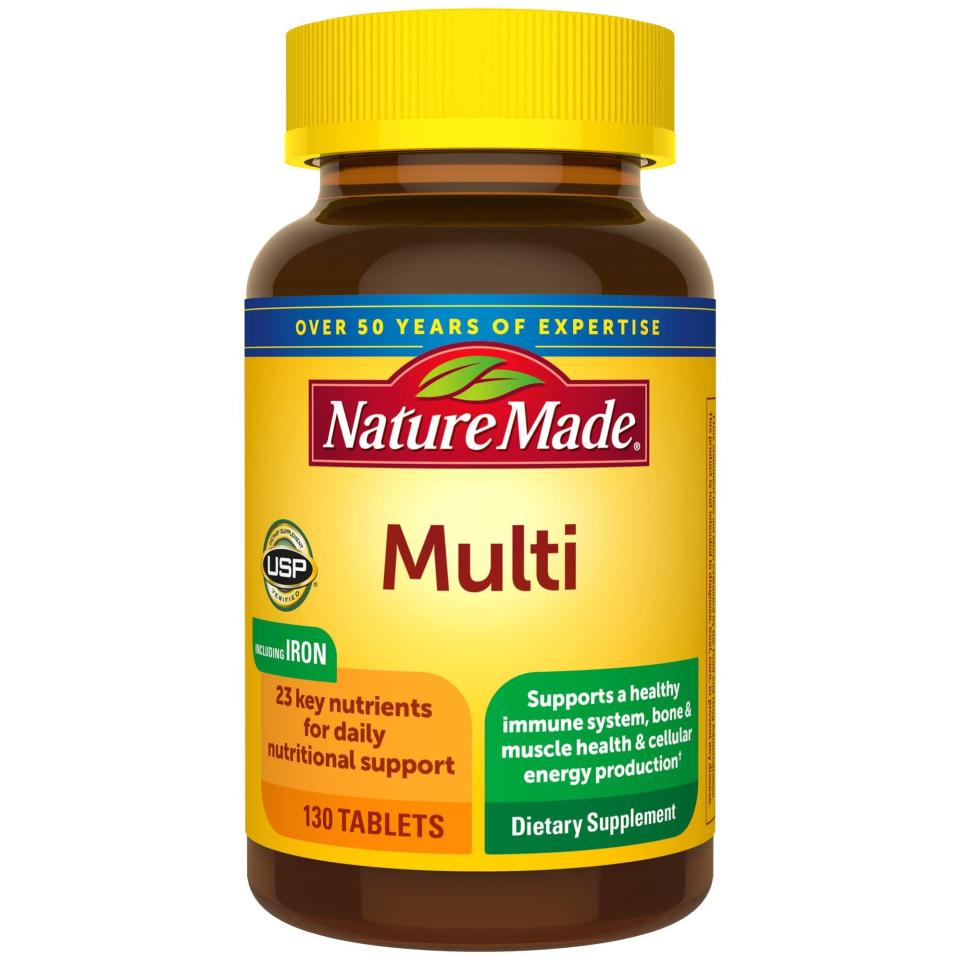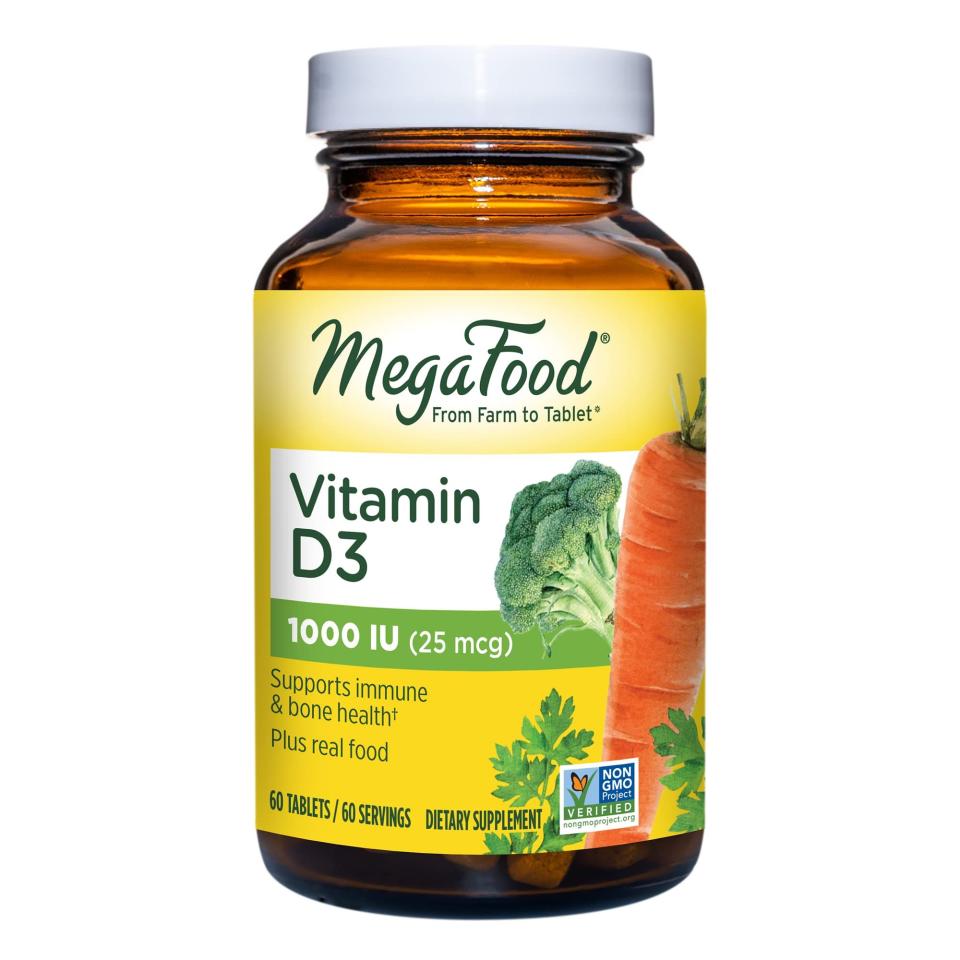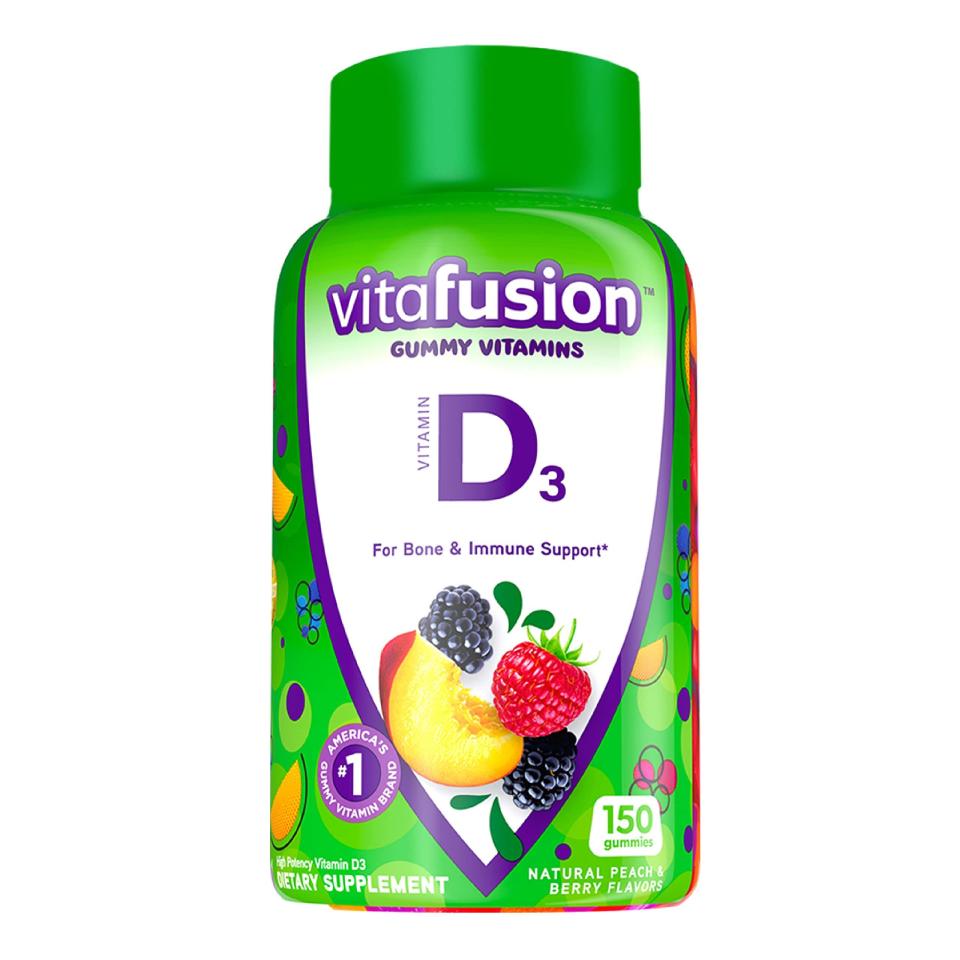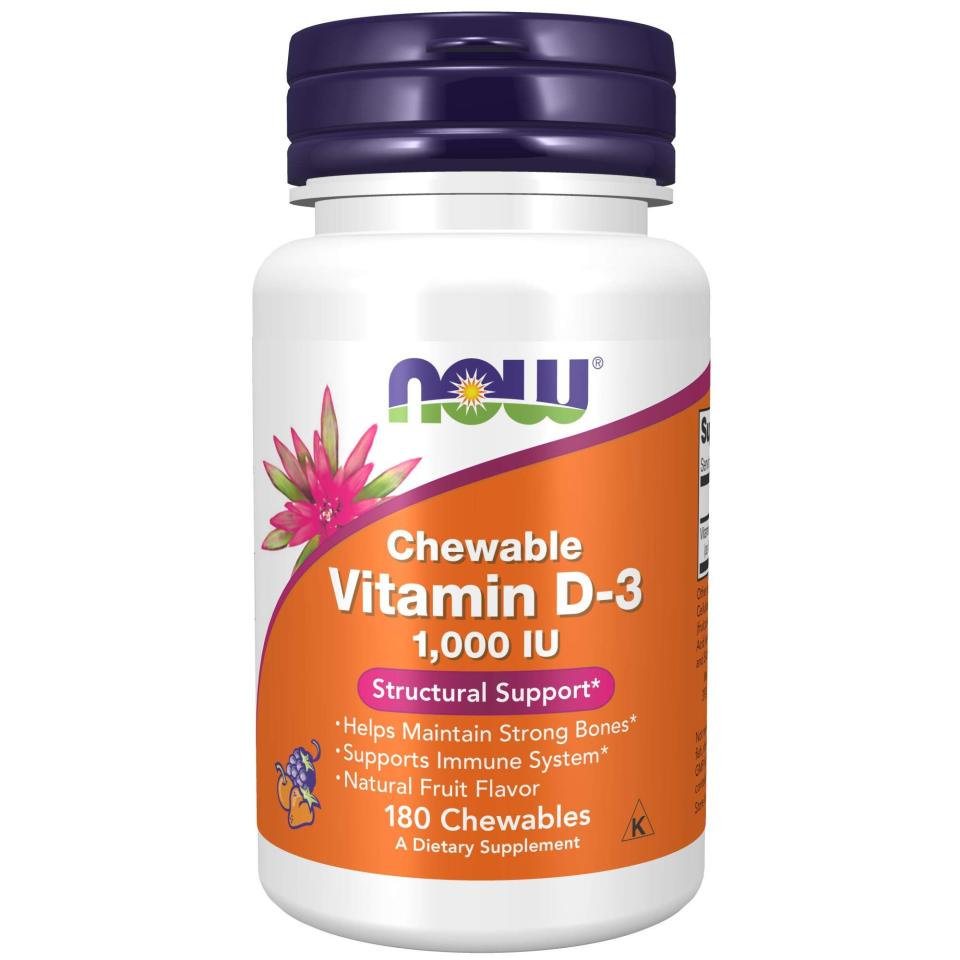Are You Taking Your Vitamins at the Right Time of Day?

"Hearst Magazines and Yahoo may earn commission or revenue on some items through these links."
Vitamins and supplements are popular — about 59% of U.S. adults report taking at least one dietary supplement in a 30-day period, with the trend more common in women than men, according to the Centers for Disease Control and Prevention. So you might be wondering if you should jump on the bandwagon, too. And if you're already aboard, you may have questions around when is the best time to take a vitamin? Is it better to take vitamins in the morning or night? Or, what vitamins should you not take together?
Before filling your cart and cupboard with every vitamin and supplement at your fingertips, "it is best to consult with your doctor and/or a registered dietitian,” says Sue-Ellen Anderson-Haynes, RDN, founder of 360Girls&Women. You want to make sure it's safe to introduce supplements according to your personal health status and medication regimen, and this also ensures you can receive guidance on proper dosing. A doctor or dietitian can also help you choose a quality brand; in general, your best bet is to look for recognized third-party testing certifications that can verify the quality of what you’re buying (NSF and USP, for example, ensure that a supplement contains what it says it does and that it doesn’t have unacceptable levels of impurities).
It’s also important to remember that while taking a multivitamin can be a good-for-you move and support a healthy lifestyle, and certain standalone supplements may help fill nutrient gaps in people who are deficient in a particular vitamin, they are not a replacement for following a healthy balanced diet. "Vitamins and supplements should be viewed simply as an enhancement to good nutrition. There are many reasons to rely on a 'food first' mantra when it comes to getting most nutrients,” says Marisa Moore, RDN, author of Plant Love Kitchen. “Whole foods offer the benefit of synergy, meaning that the nutrients in them often work together to enhance absorption and effectiveness; whole foods also provide fiber, antioxidants and other phytonutrients that aren't commonly present in supplements. And while it’s near impossible to consume too much of any one vitamin or mineral from foods, it's easier to overdo it with supplements.”
Here's what you need to know about the best time to take vitamins, and how to optimize certain supplements to get the most benefits for our body.
When is the best time to take vitamins?
Multivitamin
There's no right or wrong answer — it depends on a number of factors. “The best time of day to take vitamins is different for each person,” says Laura Iu, RD, a certified intuitive eating counselor in New York City. “It also depends on the dose and any medications you’re taking, since some nutrients can potentially interact with certain meds, which may require specific timing.” This is a prime example of why it's smart to consult with your doctor or a nutritionist before starting a vitamin regimen.

Multivitamin Tablets
amazon.com
$7.49
No matter what time of day you decide to take your multivitamin, try not to take it on an empty stomach. Some people may be likelier to experience nausea or stomach discomfort when popping a vitamin without anything in their tummy. And, "taking supplements with food helps to slow their absorption. Gradual absorption is ideal because our bodies can only absorb and utilize so much of a specific nutrient at one time," explains Taylor Wallace, PhD, CEO at the Think Healthy Group, LLC, and an adjunct clinical associate professor in the School of Medicine and Health Sciences at George Washington University in Washington, DC. Meanwhile, food can help protect the stomach lining from irritation, plus help dilute the supplement so your body can get to work absorbing and using it, Iu adds.
According to the National Institutes of Health, these individuals may benefit most from taking a multivitamin, so check in with your doctor if this sounds like you:
People age 50 and up
Women planning to get pregnant
Women who are pregnant
People who have nutrient deficiencies, poor diet or food insecurity
Vitamin C
You can take vitamin C whenever is most convenient for you. This vitamin acts as an antioxidant and helps to repair tissues in your body, and aids in collagen production to support healthy skin, tendons and ligaments. If you're hoping to reap more of these benefits by taking a higher-than-recommended dose of vitamin c, don't bother — it's water-soluble, so you’ll pee out excess amounts.
Vitamin D
There's no evidence to suggest that taking vitamin D at specific time of day will impact what it does for you, but one factor that may influence your decision is that it's fat-soluble, meaning that taking it with a meal or a snack that contains a fat can aid in its absorption. Vitamin D plays an important role in many of your body’s crucial functions, including bone health, controlling inflammation and immunity (important during cold and flu season).
Vitamin D3

Vitamin D3
amazon.com
$20.99
Vitamin D3

Vitamin D3
amazon.com
$11.64
Vitamin D-3

Vitamin D-3
amazon.com
$7.79
B-vitamins
Any time of day is fine, but morning may be best if you're in need of a little zip. This group of vitamins help release energy from carbs so that you can go, go, go, and they also play a role in good brain health. But again, overdoing B-vitamins won't give you an extra big energy boost or turn you into a genius — they're water-soluble, so you'll simply pee out whatever your body doesn't need.
Vitamin A
Again, take vitamin A whenever is convenient (are you sensing a trend?!), but since this vitamin is a fat-soluble one, timing it to one of your meals or a snack may be a good idea. Be sure to include food that contains healthy fats, such as avocado or nuts and seeds. Vitamin A plays a role in immunity, organ function and is key for reproductive health.
Vitamin E
There's no magic hour for taking this key player in vision health, but taking it with food may be smart since it's a fat-soluble vitamin. Vitamin E is also essential for good blood, skin and brain health. It's especially crucial to check with your doctor before deciding to take a vitamin E supplement, as it may be dangerous for people who have had a stroke or heart attack.
Prenatal vitamins
You can take these at any time of day — but since prenatal vitamins are generally considered an important part of a healthy pregnancy, take them at a time you're most likely to remember. “I am a firm believer that all women that are pregnant (or could get pregnant in the near future) take a prenatal vitamin that contains 100% of the daily value for all nutrients," says Wallace. The array of nutrients present in prenatal vitamins play a crucial role in healthy fetal growth and development.
Bottom line: There's no official "best time" to take vitamins, whether that's a multivitamin, standalone supplements or prenatal vitamins. But since some people may experience stomach upset when popping them without food, and some vitamins are fat-soluble (meaning fat aids in their absorption), you may want to skew toward taking vitamins with a meal or snack.
You Might Also Like

